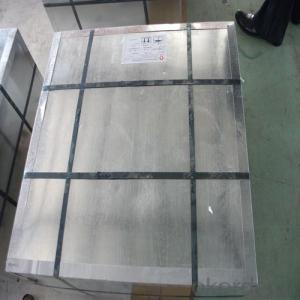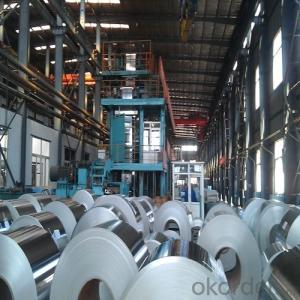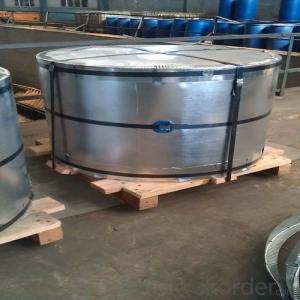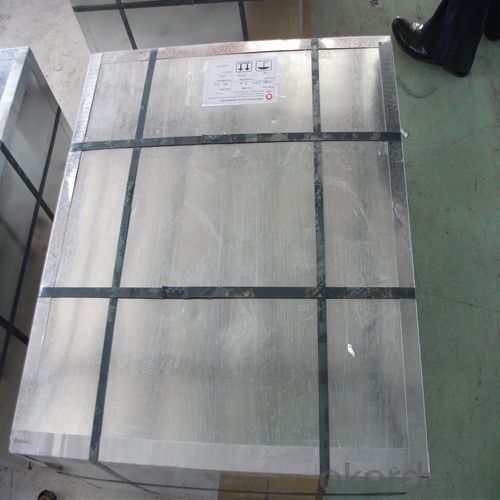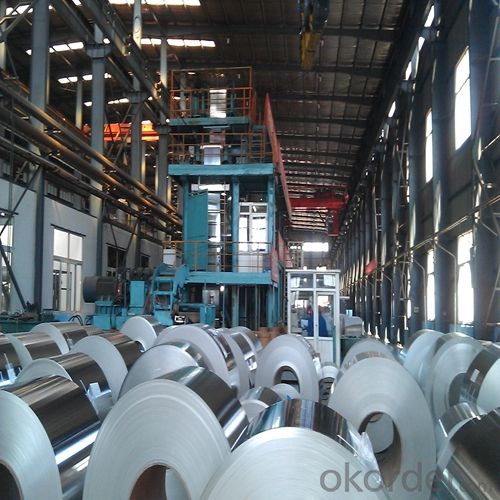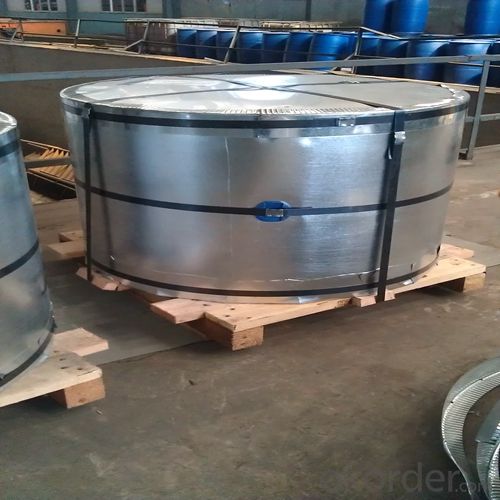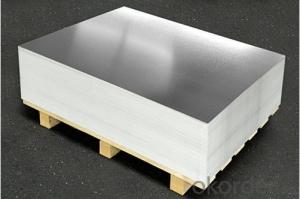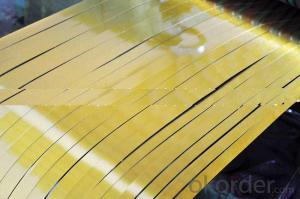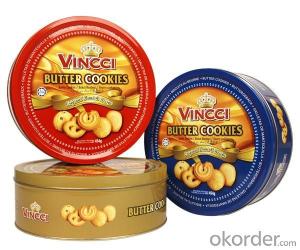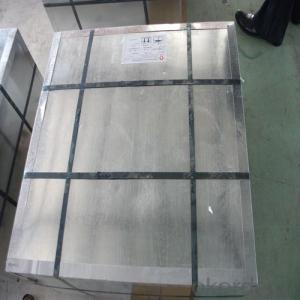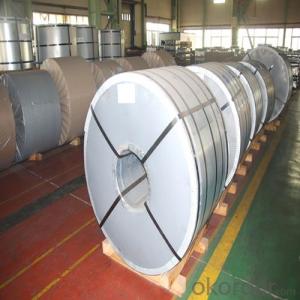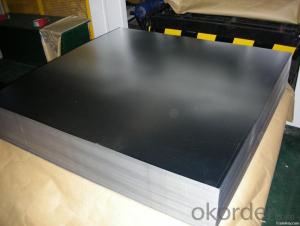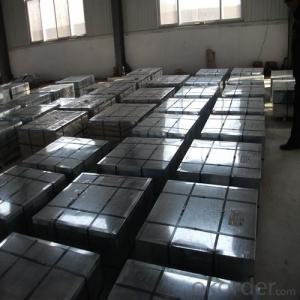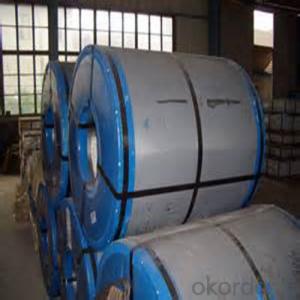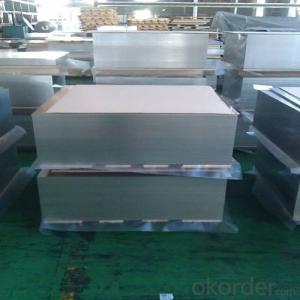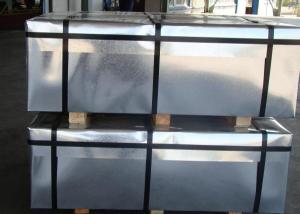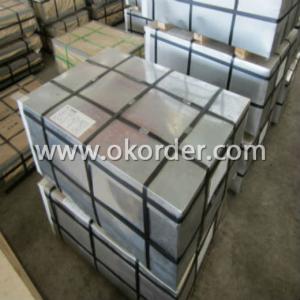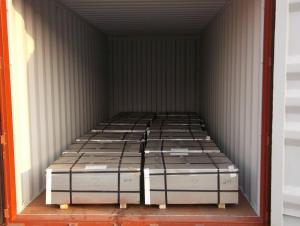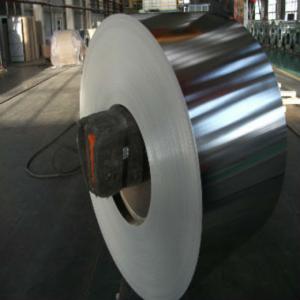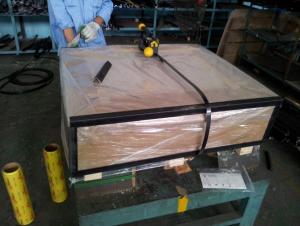Quality Electrolytic Tinplate Coils or Sheets For Tin Containers
- Loading Port:
- Tianjin
- Payment Terms:
- TT OR LC
- Min Order Qty:
- 25 m.t.
- Supply Capability:
- 15000 m.t./month
OKorder Service Pledge
OKorder Financial Service
You Might Also Like
Specification
1.Structure of Quality Electrolytic Tinplate Coils or Sheets For Tin Containers Description
Electrolytic Tinplate, is one thin steel sheet with a coating of tin applied by electrolytic deposition. Tinplate made by this process is essentially a sandwich in which the central core is strip steel. This core is cleaned in a pickling solution and then fed through tanks containing electrolyte, where tin is deposited on both sides. As the strip passes between high-frequency electric induction coils, it is heated so that the tin coating melts and flows to form a lustrous coat.
2.Main Features of the Quality Electrolytic Tinplate Coils or Sheets For Tin Containers
Formability and strength – Tinplates have got very good formability and strength. By selecting a proper temper grade, appropriate formability is obtained for different applications as well as the required strength after forming.
Corrosion resistance – Tinplate has got good corrosion resistance. By selecting a proper coating weight, appropriate corrosion resistance is obtained against container contents. Coated items should meet 24 hour 5 % salt spray requirement.
Hygienic – Tin coating provides good and non toxic barrier properties to protect food products from impurities, bacteria, moisture, light and odours.
Safe – Tinplate being low weight and high strength makes food cans easy to ship and transport.
Tin is not good for low temperature applications since it changes structure and loses adhesion when exposed to temperatures below – 40 deg C.
3.Quality Electrolytic Tinplate Coils or Sheets For Tin Containers Images
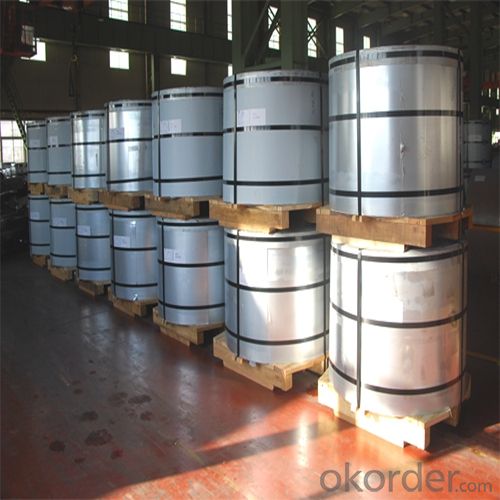
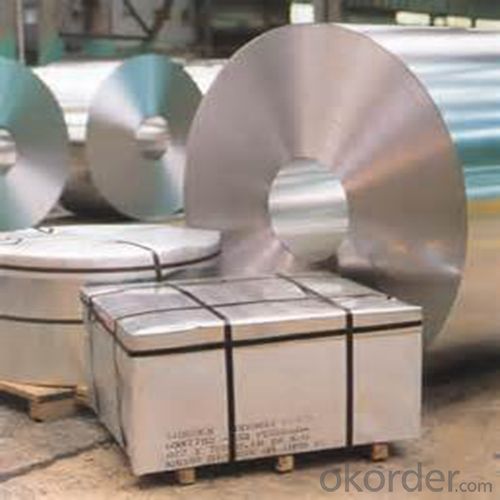
4.Quality Electrolytic Tinplate Coils or Sheets For Tin Containers Specification
Specification of :
Standard: ISO 11949 -1995, GB/T2520-2000,JIS G3303,ASTM A623, BS EN 10202
Material: MR,SPCC
Thickness:0.15mm - 0.50mm
Width: 600mm -1150mm
Temper: T1-T5
Annealing: BA & CA
Coil Inner Diameter: 508mm
Weight: 6-10 tons/coil 1~1.7 tons/sheets bundle
Passivation:311
Oil: DOS
Surface: Finish,bright,stone,matte,silver
5.FAQ of Quality Electrolytic Tinplate Coils or Sheets For Tin Containers
- How are the tinplates specified?
The tinplates are specified as per the steel base, extent of tempering, the coating weight, annealing method and the surface finish.
- How many types there are for base steels?
The base steels are of three types: Type MR, L, D
- Q: How does tinplate handle exposure to UV radiation?
- Tinplate does not handle exposure to UV radiation well as it tends to corrode and degrade over time when exposed to sunlight.
- Q: Can tinplate be used for automotive components?
- Yes, tinplate can be used for automotive components. Tinplate is a type of steel coated with a thin layer of tin, which provides corrosion resistance and aesthetic appeal. It is commonly used in the automotive industry for various components such as fuel tanks, oil pans, and engine covers.
- Q: Can tinplate be used for construction materials?
- Yes, tinplate can be used for construction materials. Tinplate is a type of steel coated with a layer of tin, which provides it with corrosion resistance and durability. It is commonly used for manufacturing various construction components, such as roofing materials, wall claddings, and structural elements. Its strength, versatility, and aesthetic appeal make it a suitable choice for construction applications.
- Q: What are the different grades of tinplate?
- The different grades of tinplate include Single Reduced (SR), Double Reduced (DR), and Electrolytic Chromium Coated Steel (ECCS).
- Q: Can tinplate be used for medical or pharmaceutical packaging?
- Yes, tinplate can be used for medical or pharmaceutical packaging. Tinplate is a durable and corrosion-resistant material that provides an excellent barrier against moisture, light, and oxygen, which is crucial for preserving the quality and integrity of medical or pharmaceutical products. Additionally, tinplate's ability to be sterilized makes it suitable for packaging items that require a high level of hygiene.
- Q: How does tinplate contribute to the attractiveness of cosmetic packaging?
- Tinplate contributes to the attractiveness of cosmetic packaging due to its unique properties. Its shiny and reflective surface enhances the visual appeal of the packaging, making it look more luxurious and high-end. Additionally, tinplate offers excellent printability, allowing for intricate designs, vibrant colors, and high-quality graphics to be displayed on the packaging, which further enhances its attractiveness. The durability and strength of tinplate also ensure that the packaging remains intact and visually appealing throughout its lifespan.
- Q: Can tinplate be used for promotional items?
- Yes, tinplate can be used for promotional items. Tinplate is versatile and can be easily shaped into various forms, making it suitable for creating promotional items such as tins, cans, boxes, and containers. These items can be customized with branding and logos, making them effective promotional tools for businesses and organizations.
- Q: What are the main growth drivers for the tinplate industry?
- The main growth drivers for the tinplate industry include increasing demand for sustainable packaging solutions, growth in the food and beverage industry, rising urbanization and disposable income, and technological advancements in manufacturing processes.
- Q: How does tinplate perform in terms of fire resistance?
- Tinplate has poor fire resistance properties due to its high heat conductivity, which means it can quickly transfer heat and ignite surrounding materials.
- Q: How is tinplate affected by extreme temperatures?
- Tinplate is minimally affected by extreme temperatures, thanks to its excellent heat resistance properties. It can withstand high temperatures without warping, melting, or losing its shape, making it a reliable material for a wide range of applications.
Send your message to us
Quality Electrolytic Tinplate Coils or Sheets For Tin Containers
- Loading Port:
- Tianjin
- Payment Terms:
- TT OR LC
- Min Order Qty:
- 25 m.t.
- Supply Capability:
- 15000 m.t./month
OKorder Service Pledge
OKorder Financial Service
Similar products
Hot products
Hot Searches
Related keywords
